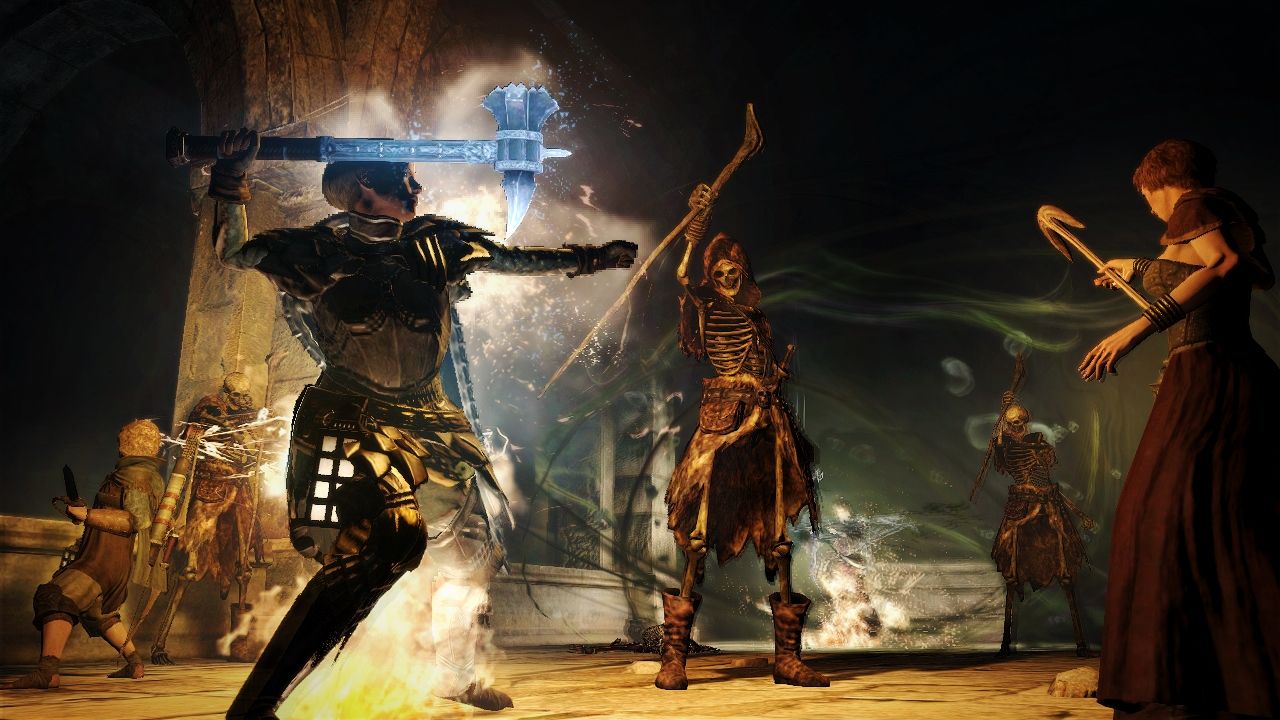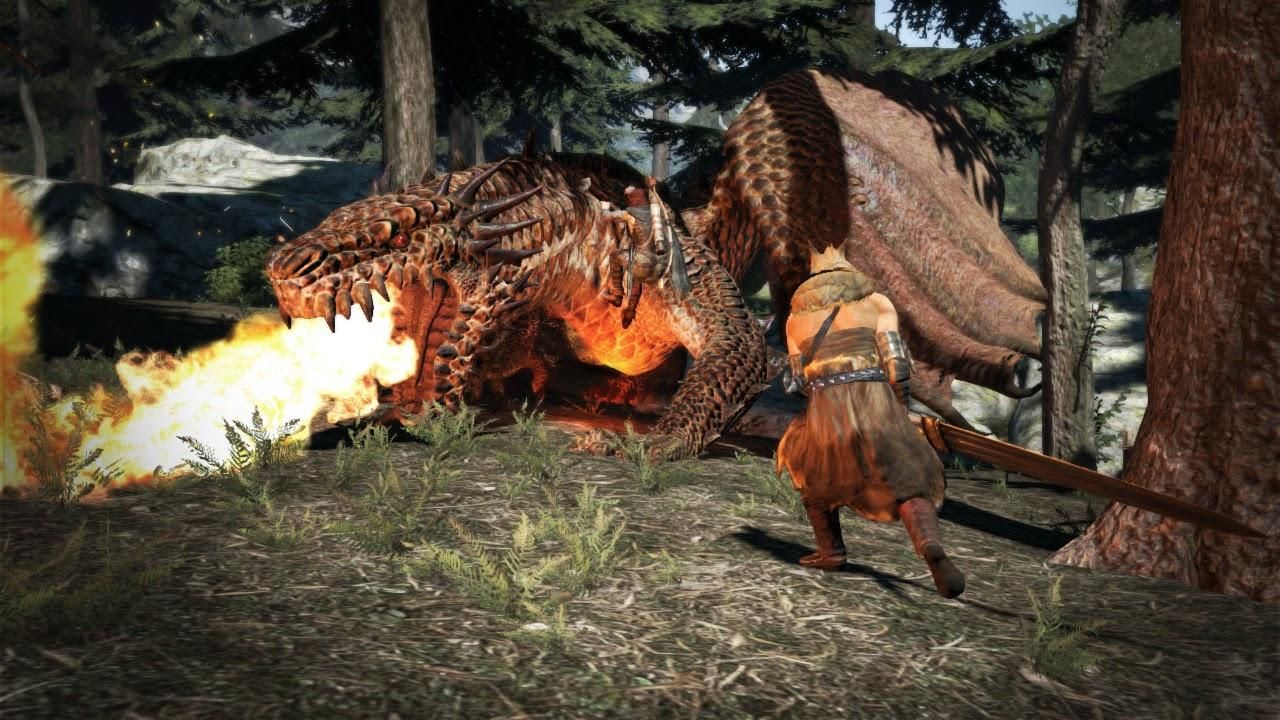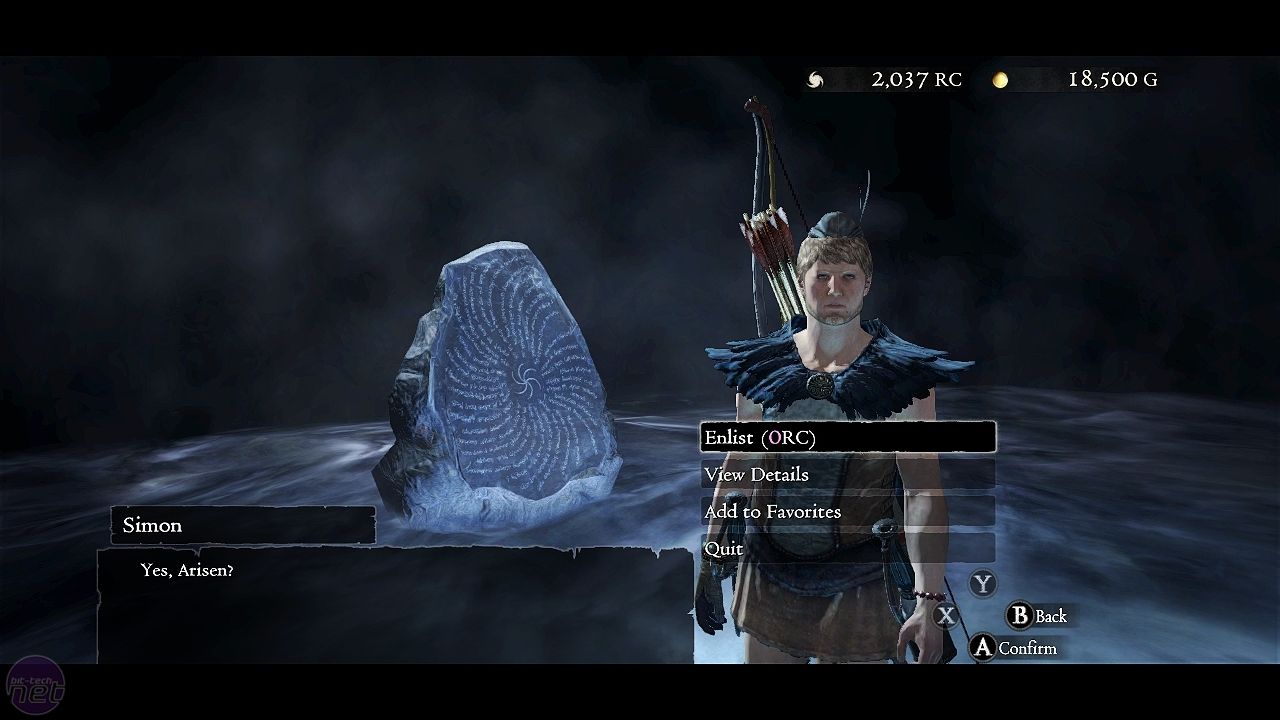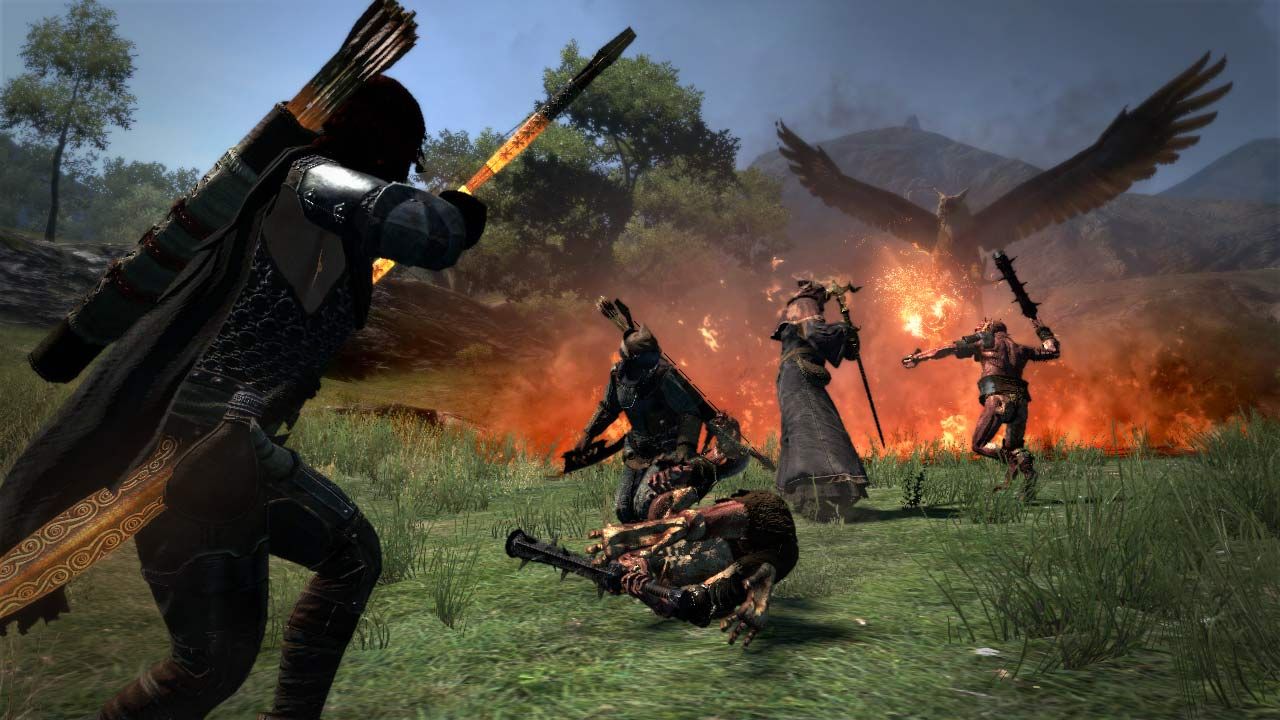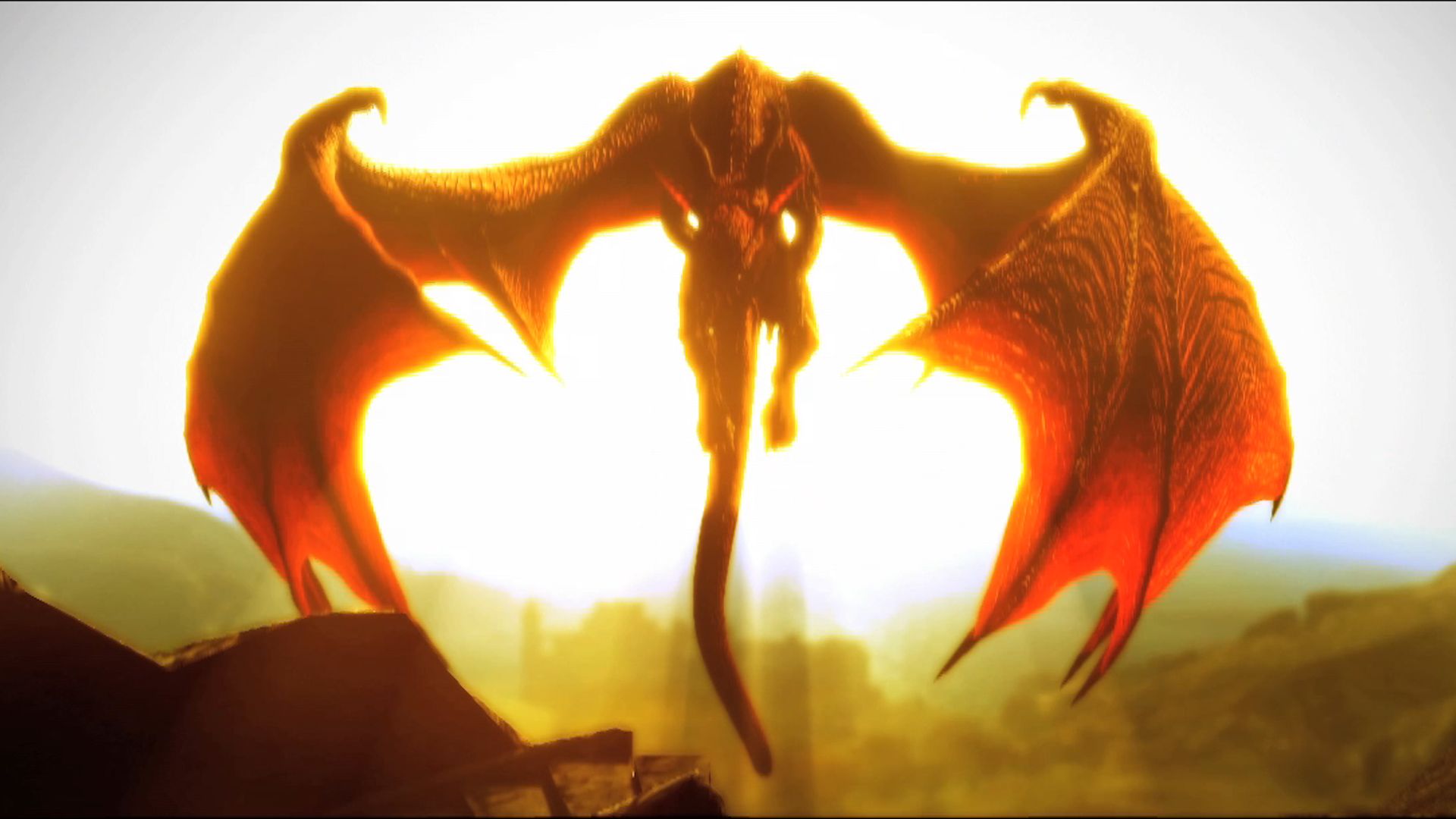Dragon’s Dogma has been advertised as an imported take on classic RPG games that have originated here in the States. It was said to offer a large, expansive world with character customization and customizable companions who will follow the player on their journey and offer advice and combat support, all while bringing a personal touch to the gaming experience.
While the title does indeed offer a large world, there are few hills to climb with both the gameplay itself and the experiences that come with having a customized group following you around. Yes, you can create your own character and play in a class you prefer, such as a dual-wielding dagger assassin complete with a secondary long bow as a back-up or even as a two-handed swordsman, but most of the downfalls in the game are due to the blatant imbalances in the difficulty. The game seems to randomly jump from mobs being on-level with you to having mobs that are far beyond your current capabilities.
The story of Dragon’s Dogma begins with a very oddly well-spoken dragon who decides to stick its fingernail into your chest and eat your heart like it’s made of Tic-Tacs. For some reason or another, you come back and you’re given the new nickname of “Arisen.” If you had an actual name before then, no one seems to really care about it.
With great cinematics and opening soundtrack, it doesn’t take long for feelings to set in that you’re about to start playing a well-planned-out RPG. It actually leaves you wanting to meet your companion, but there’s some bad news. Apparently, the entire race of the Pawns hasn’t a single personality between the lot of them. Unlike some other RPGs that allow for companion-type characters to join your party, these rarely have anything interesting to say.
If you’re looking for a game where the companions and followers makes witty comments, bicker amongst themselves, and make flirtatious advances towards your character, this isn’t the game for you. Instead, the comments made by the Pawns sound as if they were written by Captain Obvious. The constant alerts to finding small things on the ground, that doors are locked, that zombies are scary-looking, and that fire is hot will either have you muting your sound or finding a way to simply tune it out.
One of the redeeming factors, however, is the combat. The highly interactive fighting that involves yourself and your companions consist of something more than lot of button mashing. Most areas will require you to plan ahead. Equipping lanterns in dark dungeons or at night means that you’ll be going into your inventory menu and manually putting them onto your character. You also want to make sure that companions are carrying both tools and curatives before going into major battles, which they’ll activate whenever they believe it’s the right time to use them. Another interactive feature is the chance to complete triggered combo moves.
Triggered combo moves with your companion are highlighted when one of your Pawns call out to you for assistance. Time will slow down as the camera zooms in, showing exactly what is expected of you. For example, if your Pawn grabs an enemy from behind, the camera will slowly zoom up to show what is being done. It’s up to you to rotate and move your character properly in order to finish an attack. The trigger modes aren’t dictated by certain skills, either, unlike a few other games which require you to hit certain buttons in order to complete the sequence.
Instead, you’re given the freedom to determine which skill in your set would be good for closing the gap and finishing off the creature. Other combinations could be that one of your Pawns announces that they have knocked an enemy from the sky, or has pinned a beast down with their heel. Successful completion of these triggers will raise your companion’s skills and make them much more efficient in combat. You could look at it as a type of affection meter, in a way.
The monsters of Dragon’s Dogma range from being acceptably easy to annoyingly difficult. The mobs are imbalanced, which can either be taken as a good or bad thing. On one hand, you have what I like to call, “Surprise Mobs.” One minute, you’ll be feeling pretty good about yourself for killing a group of zombies, walking skeletons and poison-spitting spiders. The next minute, and just behind the group you decimated, there can be a normal-looking enemy who then one-shots your entire group in a matter of seconds. Surprise!
On the other hand, there are also giant monsters who look extremely scary and difficult, who are most likely just that. There isn’t much of a surprise there, and if you decide to pick a fight then you are expected to be prepared for the worse. The only way to really spare your pain, misery, and sometimes just flat out embarrassment, is to save constantly. You also must constantly upgrade your secondary Pawns, and I recommend going over your own level by at least five or more just to be on the safe side.
Without saving, you’ll be in for a world of hurt and frustration while trying to battle through both open area quests and dungeons alike. The quests are unmarked and unleveled for the most part, leaving you with the assumption that if something is too difficult, come back and fight another day. As your Pawns will say quite often, “There is no shame in running away from a difficult fight.”
While you can recruit Pawns who are walking around the world and towns, with the exception of your customizable one, there’s also a neat feature for people who are on Xbox Live. The online Pawn search feature is where you may go through the Rift Stone in order to snag some more Pawns that have been created by other players. These are copies of other player’s customized companions, which you can recruit into your party. The idea is amazing, in concept, but then drops the bar as you soon realize that any Pawn you obtain through the Rift will not level the same as you or your personal one. If you need to get stronger ones, you’ll have to return to the summon stone and pick again.
Since there are other people playing, there’s also a chance that a Pawn you’ve picked up one day is now at a higher level by the time you return it. You will have to spend extra points, which are accumulated by Rift Fragment drops, on Pawns that out-level your own character. However, you don’t have to spend points on Pawns that are on level with you. As a warning, with the imbalance of the mobs you’ll be facing, it seems almost a necessity to have Pawns who are at a higher level than yourself. You also have to consider their skills when picking.
Skills can be bought and allocated at a major city. You are also able to change both yourself and your personalized companion’s classes, such as swapping out a Fighter or a Mage. You cannot, however, change any of the skills on your recruited Pawns. When inside the Rift, you’ll have to take into consideration where you are headed and what skills will be helpful for the group. You may give the recruited Pawns armor and other equipment, but you cannot un-equip it, so don’t expect to get it back. The game is at least kind enough to give an adequate warning before handing over anything of value.
The world of Dragon’s Dogma is expansive, with many random quests available; however, they’re not clearly marked. The NPCs who give the quests are also not clearly marked, so there’s a lot of running around blindly. This is great for those who love open-world games. There’s hardly anything that is considered linear, outside of maybe wanting to find that dragon that spoke like a gentleman before eating your still beating heart. You can move, hunt, and kill monsters without having to find or wait for a quest pop-up to tell you where to go.
For those who like to be given more direction, this may come as an annoyance. Those who enjoy having marked quests with specified areas to go to and certain NPCS to talk to might feel lost in major towns. The maps are also drawn in broad suggestion, covering only names of large areas and a few roads. Not all of the buildings and stores are clearly identified either, which makes running around the cities a strain on your memorization skills.
The camera is also very touch and go, being more of a hassle to work with with the Xbox 360 controller. The zooming in on your companion’s triggered combo moves might throw you off if you’re not careful. Visually, the game does look very washed. As soon as the game started, right away I was able to compare it to Monster Hunter on the Wii. Playing on the Xbox 360 might not be helping with the graphics themselves, but the lip-sync is outright atrocious. Rarely do the voices line up with the movements to the mouth. The speaking will begin extremely early before the animations will even start.
Combining items in your inventory also definitely feels like something else borrowed from Monster Hunter. It’s a fun sort of mini-game when gathering random items on the field and combining them into new things. Food will spoil, liquids can be put in jars, and medicine can be created if you find the right ingredients from both monster drops and field-grown items. You can also ‘rob’ stores and houses in town, but there isn’t any sort of punishment for it. If something is available to be picked up, be it on the ground, on a merchant cart or on a table, then you can take it.
The music is what you would expect to hear in this type of RPG, but I fell in love with the irresistible sounds of a J-pop song as the opening. The voice acting is actually good with several voices, including Liam O’Brien. You are able to pick your own voice and tone when creating both your own character and your personal Pawn, which adds to the audio experiences.
Overall, the game is solid if you manage to get over the fact that there are many surprises lurking around every dark corner. There are also surprises in well-lit corners too, so keep your game saves updated. Be prepared for a lot of back and forth running and attempting some areas multiple times due to the random change in monster difficulty. Those who enjoy exploring and side-missions will definitely put in a lot of time into updating and playing with different companions, while others might want to put the controller down after only a few hours.
Dragon's Dogma definitely takes players back to a time where RPGs were more about being extremely difficult to master and fully explored and not strictly about completing a linear storyline.
Dragon's Dogma
- Platform(s)
- PS3 , Xbox 360
- Released
- May 22, 2012
- Developer(s)
- Capcom
- Publisher(s)
- Capcom
- Genre(s)
- Action RPG
- ESRB
- M For Mature 17+ due to Blood and Gore, Partial Nudity, Suggestive Themes, Violence

